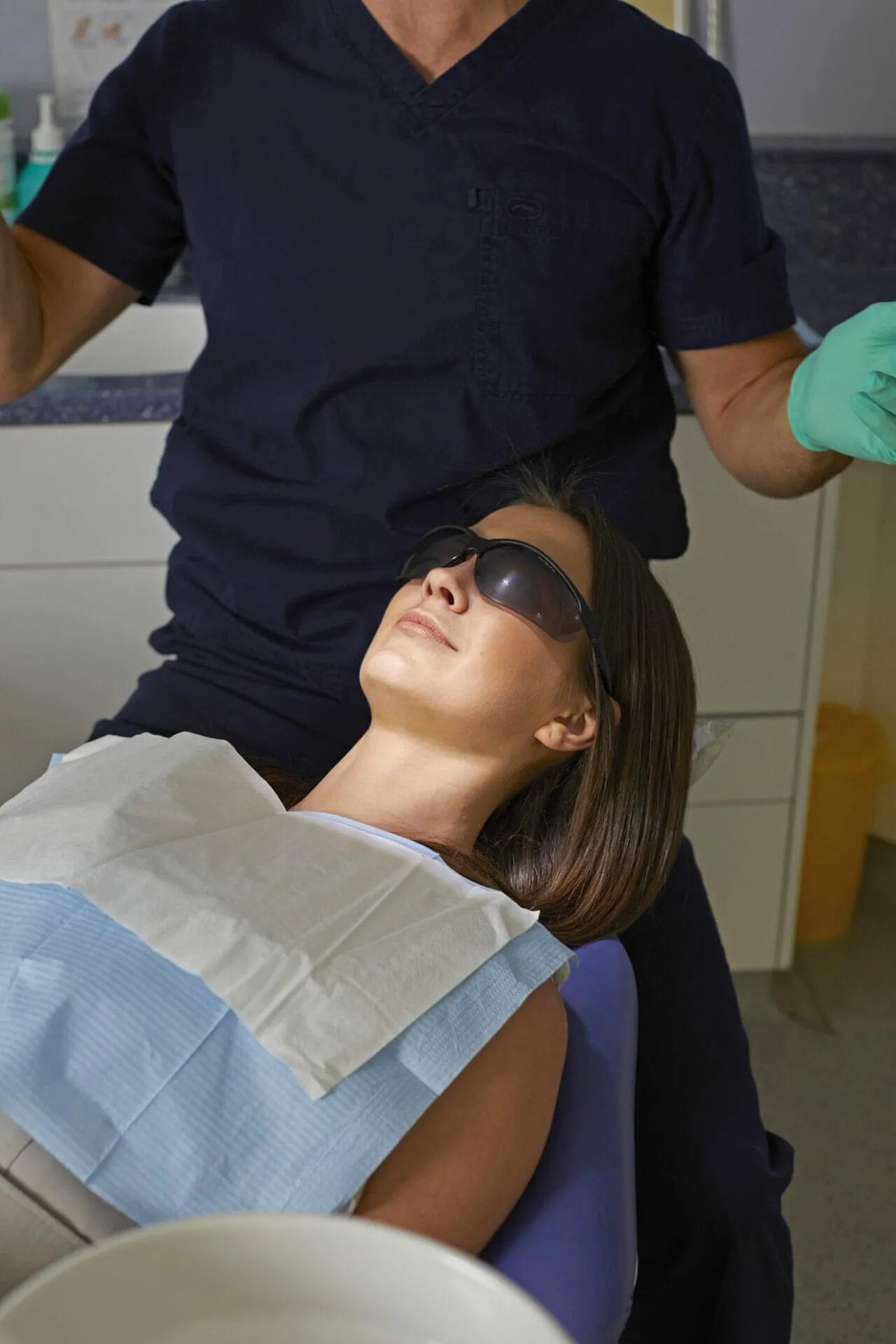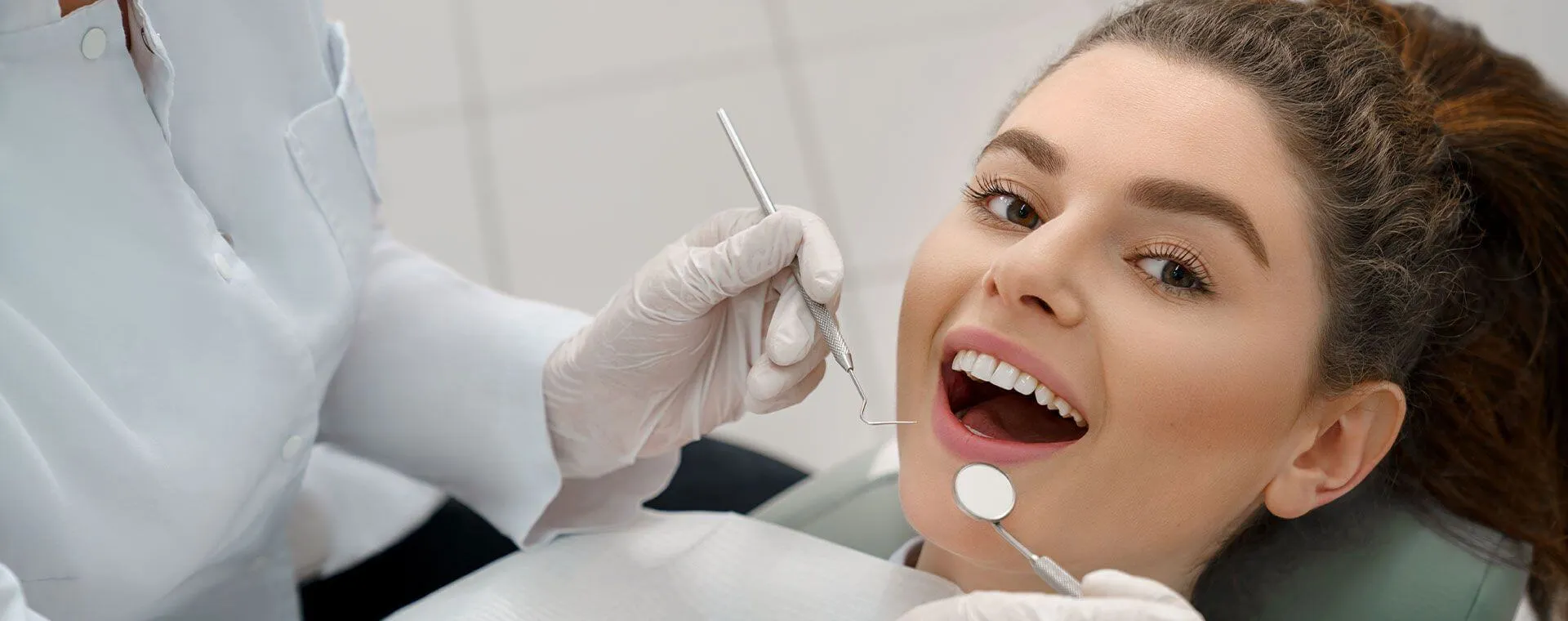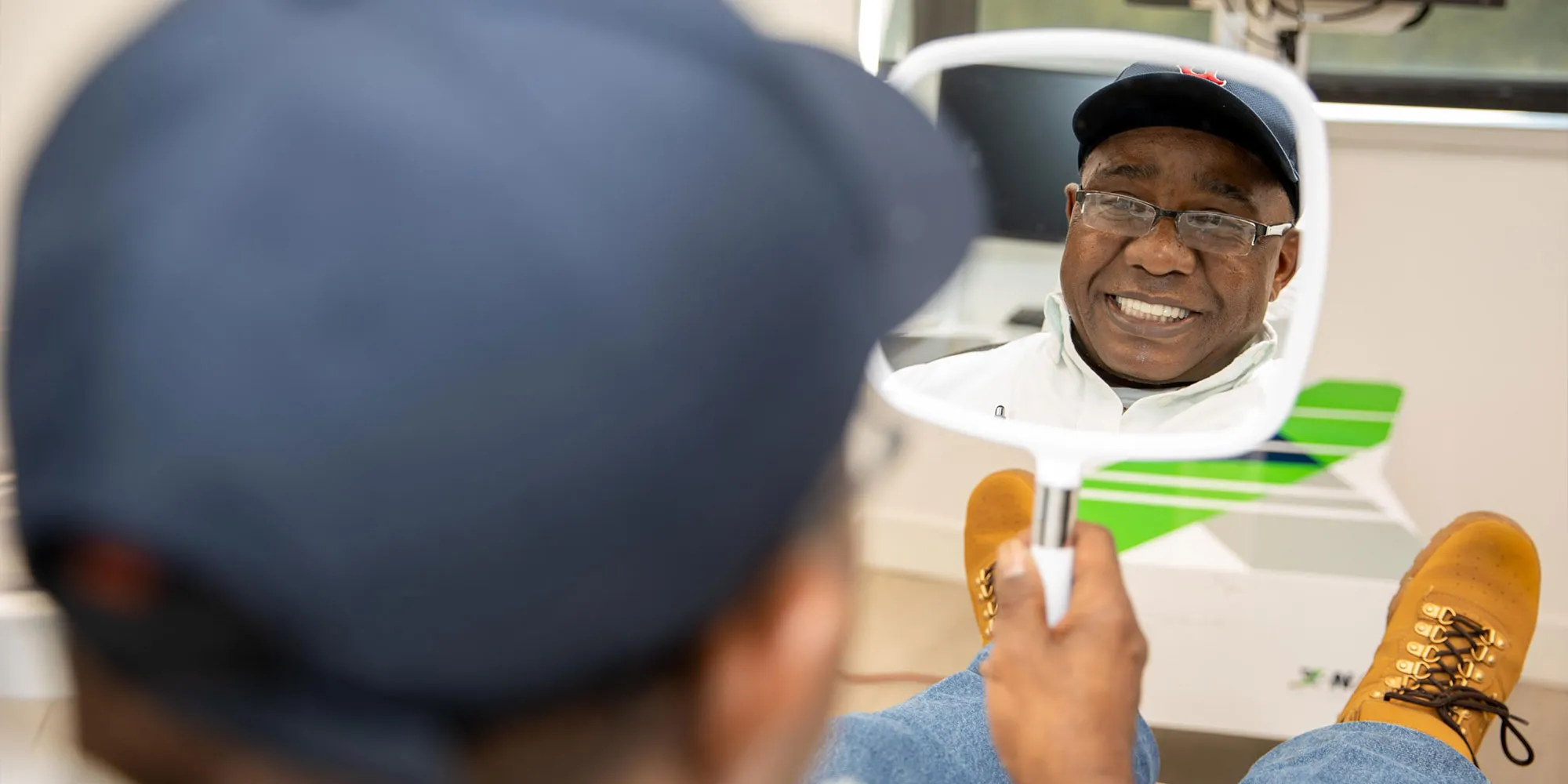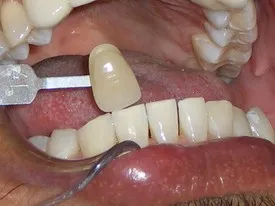What is Tooth Whitening?
Tooth whitening, also known as teeth bleaching, is a cosmetic dental procedure designed to lighten the shade of your teeth. It’s a popular choice for individuals looking to enhance their smiles and boost their confidence. Over time, teeth can become stained or discolored due to various factors such as aging, genetics, diet, and lifestyle habits like smoking. Tooth whitening treatments work by using bleaching agents, typically hydrogen peroxide or carbamide peroxide, to break down the stains and discoloration, resulting in a brighter, more radiant smile. The effectiveness of the treatment depends on the type of stains, the concentration of the bleaching agent, and the duration of the treatment. Whether you’re preparing for a special event or simply want to improve your overall appearance, tooth whitening offers a relatively quick and effective way to achieve a more appealing smile.
Types of Tooth Whitening Procedures in Boston
When considering tooth whitening in Boston, you’ll find two primary categories of procedures: in-office whitening and at-home whitening kits. Each method offers distinct advantages and caters to different preferences and budgets. Understanding the differences between these procedures is essential for making an informed decision that aligns with your specific needs and expectations. Factors such as the severity of your stains, your desired level of whitening, and your time constraints will influence the most suitable option for you. Consulting with a qualified dental professional in Boston is always recommended to determine the best approach for achieving your desired results and ensuring the safety and effectiveness of the treatment. Choosing the right method can significantly impact your overall experience and the longevity of your brighter smile.
In-Office Whitening

In-office whitening, often performed at a Boston dental clinic, offers the most dramatic and immediate results. This professional treatment involves the application of a high-concentration bleaching agent to the teeth, which is then activated using a special light or laser. The entire procedure typically takes about one to two hours, and patients can often see significant improvements in the shade of their teeth in a single session. In-office whitening is ideal for individuals seeking a quick and efficient way to achieve a brighter smile, particularly before special events or occasions. The high concentration of the bleaching agent used in professional settings allows for more potent stain removal. The dentist can also monitor the process and ensure the safety of your gums and teeth. Following in-office whitening, dentists often provide instructions for at-home maintenance to prolong the whitening effect.
At-Home Whitening Kits
At-home whitening kits offer a more convenient and cost-effective alternative for those seeking to whiten their teeth. These kits typically include custom-fitted trays and a lower concentration bleaching agent that you apply at home for a specified period each day or night. Results from at-home whitening are usually more gradual but can still be very effective over several weeks. At-home kits are a popular choice for individuals who prefer a more flexible treatment schedule and are comfortable with self-application. It’s essential to follow the dentist’s instructions carefully to ensure safety and optimal results. Regular dental check-ups are still important, even when using at-home kits, to monitor progress and address any potential issues. Always consult with your dentist to ensure that at-home whitening is suitable for your specific needs and to receive personalized guidance.
Teeth Whitening Boston Secret 1 Professional Consultation
The first secret to successful tooth whitening in Boston is a professional consultation with a qualified dentist. This initial assessment is crucial for determining your candidacy for whitening and identifying the most suitable treatment option. During the consultation, the dentist will examine your teeth and gums, assess the type and severity of your stains, and discuss your expectations. They will also evaluate your overall oral health to ensure that you don’t have any underlying issues that could affect the whitening process, such as cavities or gum disease. The dentist will then explain the different whitening methods available, including in-office treatments and at-home kits, and recommend the best course of action based on your individual needs. A professional consultation is an essential step towards achieving a safe, effective, and long-lasting brighter smile.
Understanding Your Needs

Understanding your specific needs and goals is a critical part of the consultation process. Your dentist will take the time to listen to your concerns, discuss your desired level of whitening, and explain the potential outcomes. This helps to set realistic expectations and ensures that you are comfortable with the recommended treatment plan. You should be prepared to share information about your lifestyle habits, such as your diet and smoking habits, as these can influence the effectiveness of the whitening treatment. Open communication with your dentist will help create a personalized whitening plan that best meets your individual requirements. It is essential to feel confident and informed about every step of the process, from the initial consultation to the final results.
Secret 2 The Importance of Oral Hygiene
Maintaining excellent oral hygiene is fundamental to achieving and preserving the results of tooth whitening. Before undergoing any whitening treatment, it’s essential to ensure that your teeth and gums are healthy and free from any underlying issues. This includes regular brushing, flossing, and professional dental cleanings. Proper oral hygiene helps to remove surface stains, plaque, and bacteria, allowing the whitening agent to penetrate the tooth enamel effectively. After whitening, good oral hygiene becomes even more crucial for preventing new stains and maintaining your brighter smile. By incorporating proper brushing and flossing techniques into your daily routine, you can extend the lifespan of your whitening results and enjoy a healthier, more confident smile for years to come. Ignoring good oral hygiene practices can lead to a diminished whitening effect and a higher risk of dental problems.
Brushing and Flossing Regularly
Brushing your teeth at least twice a day with a fluoride toothpaste is a cornerstone of good oral hygiene. Brushing removes food particles, plaque, and bacteria that can lead to stains, cavities, and gum disease. Use gentle, circular motions and be sure to brush all surfaces of your teeth, including the front, back, and chewing surfaces. Flossing daily is equally important, as it removes plaque and food particles from between your teeth and along the gumline, areas that your toothbrush cannot reach. Flossing helps to prevent the buildup of bacteria and reduces the risk of gum disease. By combining regular brushing and flossing, you can effectively maintain a healthy, clean mouth and create an ideal environment for successful tooth whitening. Make sure you’re using a soft-bristled toothbrush to avoid damaging your enamel.
Avoiding Staining Foods and Drinks

Certain foods and drinks are notorious for staining teeth, and minimizing their consumption is critical for preserving your whitening results. Coffee, tea, red wine, and dark-colored sodas are among the most common culprits. These beverages contain chromogens, pigments that can easily adhere to tooth enamel and cause discoloration. Similarly, highly pigmented foods like berries, tomato sauce, and soy sauce can also contribute to staining. After undergoing tooth whitening, it’s important to be mindful of your diet and limit your intake of these staining substances. Rinsing your mouth with water after consuming staining foods or drinks can also help to minimize the impact. By making conscious dietary choices, you can protect your investment in tooth whitening and enjoy a consistently brighter smile.
Secret 3 Choosing the Right Whitening Method
Selecting the appropriate tooth whitening method is essential for achieving your desired results and ensuring a positive experience. The best method for you will depend on several factors, including the severity of your stains, your desired level of whitening, your budget, and your lifestyle. In-office whitening offers immediate and dramatic results, making it ideal for individuals seeking a quick transformation. At-home whitening kits provide more flexibility and are a more budget-friendly option, allowing you to whiten your teeth at your convenience. Consulting with your dentist is critical for determining the most suitable approach based on your individual needs and goals. They can evaluate your oral health, assess your stains, and explain the pros and cons of each method. Choosing the right method ensures that you achieve a brighter smile safely and effectively.
Pros and Cons of Different Methods
Each tooth whitening method has its own set of advantages and disadvantages. In-office whitening offers the benefit of immediate results and professional supervision, but it is often more expensive and may cause temporary tooth sensitivity. At-home whitening kits are more affordable and provide the flexibility to whiten your teeth at your own pace, but they require more time and commitment, and the results may be less dramatic. Some at-home kits may also not be as effective for certain types of stains. Over-the-counter whitening products, such as strips and toothpastes, are readily available and inexpensive, but their effectiveness can be limited. It’s essential to weigh the pros and cons of each method and consider your individual needs, lifestyle, and budget. Your dentist can help you navigate these options and make an informed decision.
Secret 4 Maintaining Your Results

Maintaining the results of your tooth whitening treatment requires a proactive approach. Following your dentist’s instructions, practicing good oral hygiene, and making lifestyle adjustments can significantly extend the lifespan of your brighter smile. This includes brushing and flossing regularly, avoiding staining foods and drinks, and attending regular dental check-ups. Your dentist may also recommend touch-up treatments or at-home maintenance products to help you maintain your desired level of whiteness. Proper maintenance not only helps to preserve your results but also promotes overall oral health. By adopting these habits, you can enjoy a confident, radiant smile for years to come. Being diligent with aftercare ensures you get the best return on your investment in tooth whitening.
Follow-Up Appointments
Regular follow-up appointments with your dentist are essential for monitoring the results of your tooth whitening treatment and addressing any potential issues. These appointments typically involve a check of your teeth and gums, as well as a discussion about your oral hygiene habits and any concerns you may have. Your dentist may also recommend professional cleanings to remove any surface stains and maintain your bright smile. Follow-up appointments allow your dentist to assess the effectiveness of the whitening treatment, make recommendations for touch-up treatments, and address any tooth sensitivity or other side effects. By attending these appointments, you can ensure that your smile remains healthy and radiant for an extended period. Your dentist can also provide valuable insights into your oral health.
Secret 5 Finding a Reputable Boston Dentist
The final secret to successful tooth whitening in Boston is choosing a reputable and experienced dentist. Selecting a qualified dentist is essential for ensuring the safety, effectiveness, and long-term success of your whitening treatment. Look for a dentist with a strong reputation, positive patient reviews, and extensive experience in cosmetic dentistry. A reputable dentist will provide a thorough consultation, explain the different whitening options available, and create a personalized treatment plan based on your individual needs. They should also use high-quality products and techniques, and prioritize your comfort and satisfaction. Choosing a dentist who is committed to providing excellent patient care and achieving outstanding results will increase your chances of achieving a beautiful, brighter smile.
Reading Reviews and Checking Credentials

Before choosing a dentist, take the time to read online reviews and check their credentials. Patient reviews provide valuable insights into the dentist’s skills, professionalism, and the overall patient experience. Look for dentists with consistently positive reviews and a proven track record of successful whitening treatments. Verify their credentials, including their education, licensing, and any certifications in cosmetic dentistry. You can typically find this information on the dentist’s website or through professional organizations. Checking reviews and credentials helps you make an informed decision and ensures that you select a dentist who can provide you with high-quality care and achieve the results you desire. A trustworthy dentist can make all the difference in your tooth whitening experience.
The Cost of Tooth Whitening in Boston
The cost of tooth whitening in Boston can vary significantly depending on the type of treatment, the dentist’s fees, and the complexity of the procedure. In-office whitening treatments are generally more expensive than at-home kits, as they involve professional services and specialized equipment. Factors such as the number of teeth being treated and the severity of the stains can also influence the cost. Before undergoing any whitening treatment, it’s important to discuss the cost with your dentist and understand the payment options available. Some dental insurance plans may cover a portion of the cost, particularly if the whitening is deemed medically necessary. Comparing prices from different dental practices in Boston can help you find a treatment that fits your budget and meets your needs. Keep in mind that the least expensive option isn’t always the best, so be sure to prioritize quality and the dentist’s experience.
